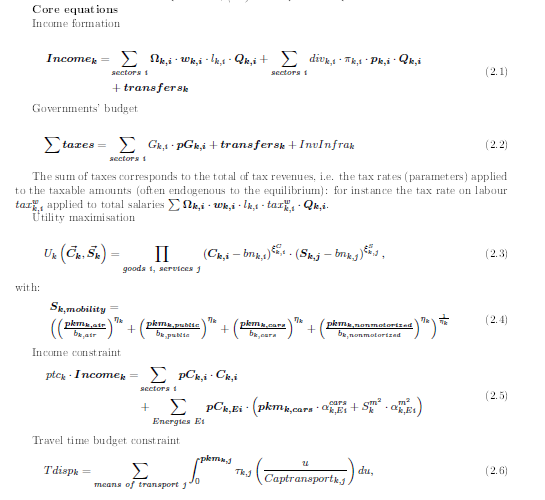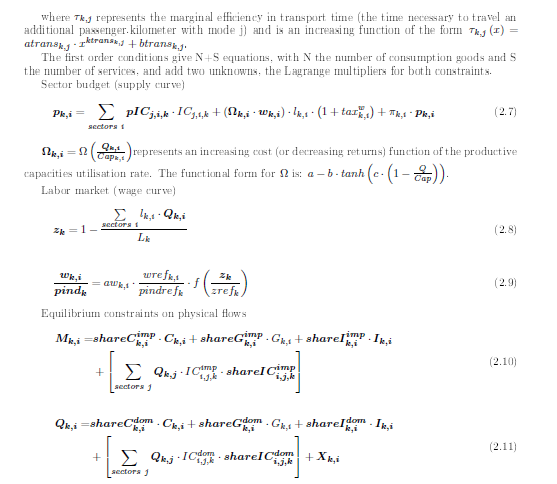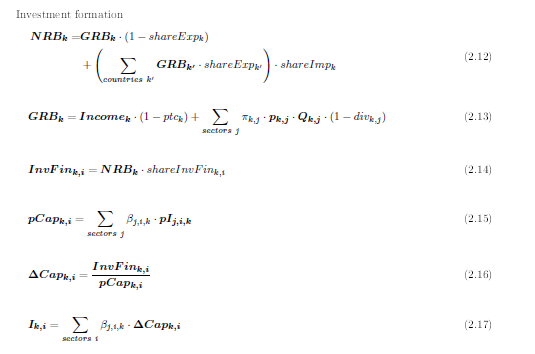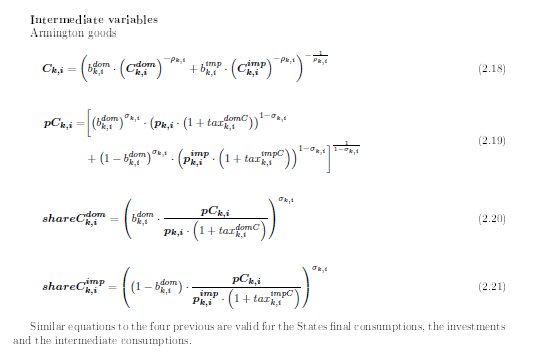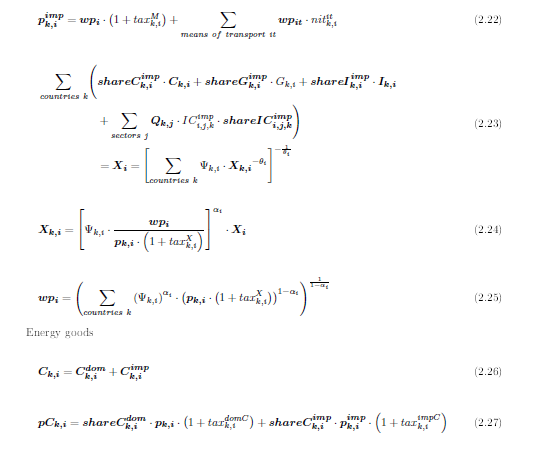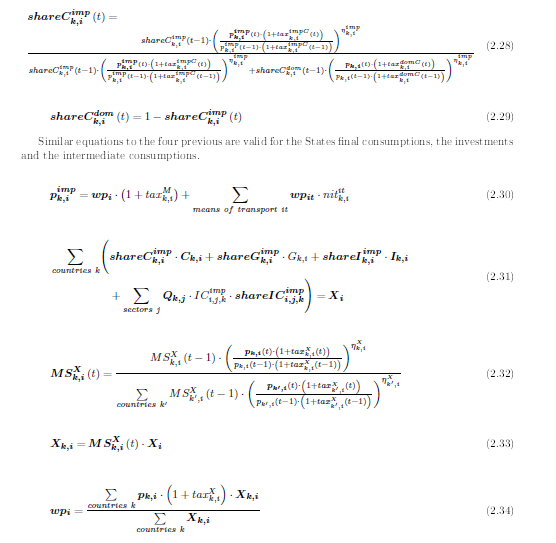Mathematical model description - IMACLIM: Difference between revisions
Jump to navigation
Jump to search
m (1 revision imported) |
m (Text replacement - "(Image:.*IMPORT\/attachments\/[0-9]*\/[0-9]*.png\|)" to "File:") |
||
| Line 9: | Line 9: | ||
'''Equations of the static equilibrium'''<br /> Bold=variable<br /> k index represents regions, i and j indexes represents sectors. | '''Equations of the static equilibrium'''<br /> Bold=variable<br /> k index represents regions, i and j indexes represents sectors. | ||
t refers to the date of the equilibrium, (t-1) to the previous equilibrium. [[ | t refers to the date of the equilibrium, (t-1) to the previous equilibrium. [[File:35815681.png]]<br />[[File:35815682.png]]<br />[[File:35815683.png]]<br />[[File:35815684.png]]<br />[[File:35815685.png]]<br />[[File:35815686.png]] | ||
Latest revision as of 13:51, 24 August 2016
| Corresponding documentation | |
|---|---|
| Previous versions | |
| Model information | |
| Model link | |
| Institution | Centre international de recherche sur l'environnement et le développement (CIRED), France, http://www.centre-cired.fr., Societe de Mathematiques Appliquees et de Sciences Humaines (SMASH), France, http://www.smash.fr. |
| Solution concept | General equilibrium (closed economy) |
| Solution method | SimulationImaclim-R is implemented in Scilab, and uses the fonction fsolve from a shared C++ library to solve the static equilibrium system of non-linear equations. |
| Anticipation | Recursive dynamics: each year the equilibrium is solved (system of non-linear equations), in between two years parameters to the equilibrium evolve according to specified functions. |
Equations of the static equilibria
The calculation of the equilibria determines the following variables at each date t : relative prices, wages, labour, quantities of goods and services including energy, value flows, physical flows, capacity utilization.
Equations of the static equilibrium
Bold=variable
k index represents regions, i and j indexes represents sectors.
t refers to the date of the equilibrium, (t-1) to the previous equilibrium. 